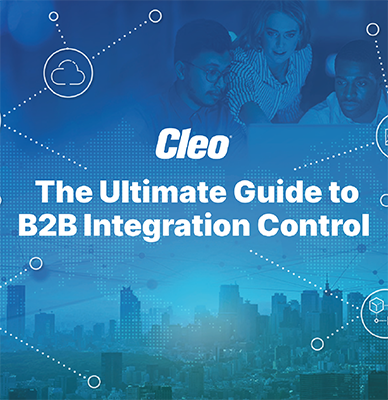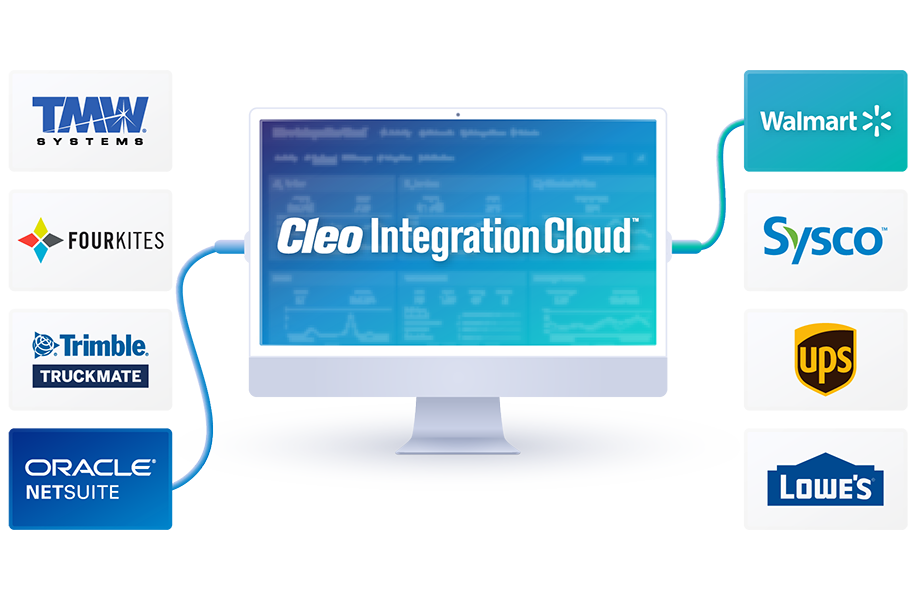Blog: Application Proliferation and The Intelligent Enterprise: An Interview with Cleo CEO, Mahesh Rajasekharan
Earlier this summer, we had the opportunity sit down with Cleo CEO, Mahesh Rajasekharan to discuss digital transformation, the cutting-edge technologies that are driving business forward, and one of the most pressing challenges companies face as they attempt to digitally transform. Today, we are carrying on our discussion with a focus the intelligent enterprise – what that means and why integration is the key to making the business smarter.
What factor do you see having the largest impact on the integration space currently?
The single greatest impact on the integration space today is coming from application proliferation – no question. We are seeing an explosion of niche, purpose-built applications coming into play as companies are attempting to digitally transform. And most of these specialized applications are designed with an aim towards building on the idea of creating the intelligent enterprise.
However, the application explosion didn’t come out of the blue. Its source is twofold. First, is the cloud. The majority of applications in this sense are digitally native – or born in the cloud. They are consumed via the cloud. And are necessarily part of larger business ecosystems that expand to include on-premise systems, along with customers, suppliers, and trading partners.
Second, the growth in the number of applications is not independently derived. No, it’s really an expression of appetite for business-oriented applications across the organization – a fact that means appetite for integration is also decentralized.
When you say that integration is decentralized, how is that expressed within an organization?
It wasn’t so long ago that IT stood as the sole owner when it came to technology adoption. Which applications became part of the enterprise framework, the strategy and tactical implementation of those applications, always resided with the technical center of excellence in the organization. By extension, integration responsibility fell here as well.
Today, we are seeing something different as application choice, adoption, and integration responsibilities are diversifying. Looking at a modern, digitally-transformed business, the integration center of excellence won’t necessarily reside within IT.
I’d like to take a moment to circle back to something you said earlier. Can you expand a little on the idea of the intelligent enterprise?
To put it quite simply and with awareness that by now the point is somewhat cliché, the intelligent enterprise is one that is driven by data. Companies are trying to fashion intelligent enterprises that are data-driven. And to this end, you need intelligent, purpose-built applications that allow the business to leverage new application and business data sources – aggregating, unifying, and provisioning the right data for analytics, business intelligence, data science, and so on.
So, how does that work in practice?
If you think about this through an enterprise marketing lens, the traditional part is the capacity and capability to create and distribute content. Once again, the intelligent part is around the data – the ability to measure the efficacy of that content throughout the engagement cycle, and derive meaningful insight to iterate on marketing tactics – to fine-tune programs for the betterment of business outcomes that are being driven by marketing initiatives. The complexity gets introduced – gets infused – by the sheer number of applications involved.
If I understand you correctly, it seems as though you are saying that applications are both a source of data complexity, but might they also present the solution to that very complexity?
Absolutely, but we are talking about different types of applications, but all purpose-built to drive specific outcomes oriented toward the business. Say one set of purpose-built applications will need to deliver a range of desired outcomes for a business unit, like human capital management, content marketing, logistics operations, sales, and so forth. An integration application must be implemented to deliver coherency around the data that’s being generated, through connectivity, visibility, and governance. Otherwise, each business application will inevitably form a data silo which flies in the face of the intelligent enterprise.
If you go deeper on the marketing front, you can point to an entire application ecosystem springing out of a chosen CRM. For instance, you begin with a tight integration between the CRM and marketing automation platform. And layer on top of that attribution modeling for lead scoring and conversion tracking, SEO, remarketing, analytics, social media engagement and PR tools, email and audience survey software, and so on.
At the end of the day, the average enterprise uses something like ninety different marketing cloud services. That is not only a staggering count, but points to an integration challenge that didn’t exist a few years ago. Now imagine that same challenge playing out across multiple business units in the enterprise, and the scale of application proliferation starts to take shape.
To wrap up this point, the intelligent enterprise is contingent on the availability, transparency, and veracity of data that is generated by domain-specific applications, and made available for analysis. To tie the concept back to your first question, the only thing that makes any of this work is integration – or to put it through a modern lens, a purpose-built application designed to deliver optimal integration across an ecosystem of business applications, trading partners, and data sources.
***
Cleo Integration Cloud combines integration service and technology to provide the most flexible and frictionless way to exchange business-to-business and application data. A leading-edge platform focusing on creating value at the edges of business ecosystems, Cleo Integration Cloud shields your business from the complexities of multi-enterprise and application integration, and further enables the real-time visibility and governance required to gain insight and control across your critical partner and customer relationships.

About Cleo

Watch a Demo

Comprehensive Guide to Gaining B2B Control

Duraflame Case Study
